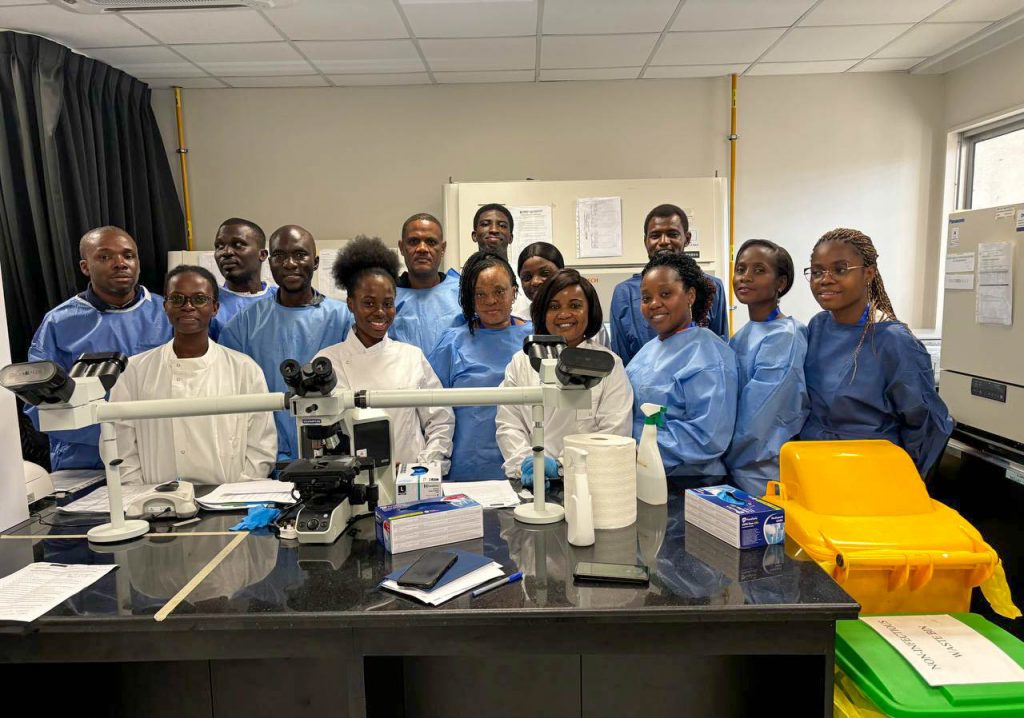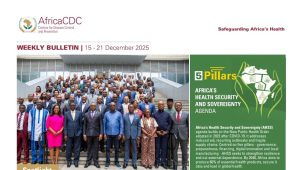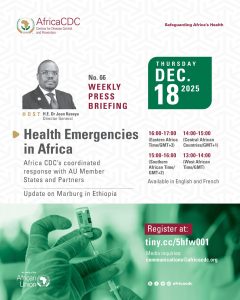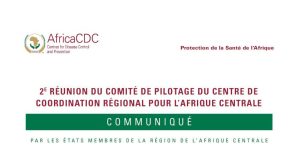Africa’s leading genomic researchers are urgently advocating for a coordinated approach to genomic surveillance of cholera in the continent’s most vulnerable settings. Leveraging existing local expertise, they propose establishing a broader network to enhance genomic surveillance and response capabilities for a wide range of infectious diseases across the 55 African Union (AU) member states.
Cholera, an acute diarrheal disease caused by ingesting food or water contaminated with Vibrio cholerae, has led to high numbers of cases in the Democratic Republic of Congo, Mozambique, Zimbabwe, and Zambia in 2024. In response, Africa CDC and national public health institutes and reference laboratories from seven AU member states—Cameroon, the Democratic Republic of Congo, Malawi, Mozambique, Nigeria, Uganda, and Zambia— and in collaboration with Johns Hopkins University and Brigham and Women’s Hospital in the United States to form the Cholera Genomics Consortium (CholGEN) in 2022.
This consortium utilized local genomic sequencing expertise developed during the COVID-19 pandemic to sequence over 1,000 V. cholerae isolates from recent and historical outbreaks in each African country. The consortium aims to enhance cholera surveillance in Africa to prevent and rapidly respond to outbreaks.
“The data collected and analyzed is crucial for understanding the dynamics, cross border transmission, persistence, and tracking cholera outbreaks in Africa,” said Gerald Mboowa, Implementation Science Expert for Bioinformatics at Africa CDC.
Joint analyses of these data have provided an updated picture of circulating cholera diversity, identified specific instances of likely cross-border transmission, and underscored the role of genomic surveillance in understanding different transmission scenarios.
During their meeting from July 22–26, 2024, scientists emphasized that Africa CDC should continue to support and encourage cholera-endemic and potential cholera-endemic countries to conduct genomic surveillance on the introduction or resurgence of strains. They also called for creating standardized protocols for data sharing that respect privacy concerns and ethical standards and foster collaborations among African countries to share data, resources, and best practices.
“Data should not only be used to respond to disease outbreaks but also to predict and prevent them through advanced analytics and modeling,” said Dr Sofonias K. Tessema, Program Lead, Africa PGI. “This collaborative genomic surveillance underscores the critical importance of building local capacity in Africa to address public health challenges such as cholera, emphasizing the need for regional cooperation and real-time genomic surveillance to effectively manage and control outbreaks,” said Dr. Kunda G. Musonda, Director of the Zambia National Public Health Laboratory Service (NPHLS).







